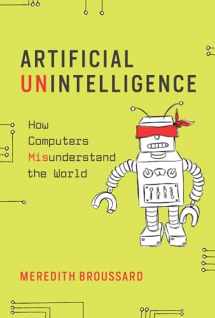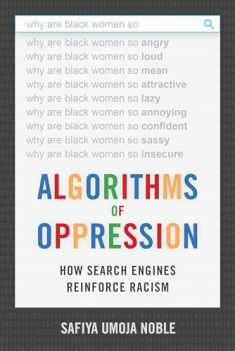
Artificial Unintelligence: How Computers Misunderstand the World (Mit Press)
Book details
Summary
Description
A guide to understanding the inner workings and outer limits of technology and why we should never assume that computers always get it right.
In Artificial Unintelligence, Meredith Broussard argues that our collective enthusiasm for applying computer technology to every aspect of life has resulted in a tremendous amount of poorly designed systems. We are so eager to do everything digitally―hiring, driving, paying bills, even choosing romantic partners―that we have stopped demanding that our technology actually work. Broussard, a software developer and journalist, reminds us that there are fundamental limits to what we can (and should) do with technology. With this book, she offers a guide to understanding the inner workings and outer limits of technology―and issues a warning that we should never assume that computers always get things right.
Making a case against technochauvinism―the belief that technology is always the solution―Broussard argues that it's just not true that social problems would inevitably retreat before a digitally enabled Utopia. To prove her point, she undertakes a series of adventures in computer programming. She goes for an alarming ride in a driverless car, concluding “the cyborg future is not coming any time soon”; uses artificial intelligence to investigate why students can't pass standardized tests; deploys machine learning to predict which passengers survived the Titanic disaster; and attempts to repair the U.S. campaign finance system by building AI software. If we understand the limits of what we can do with technology, Broussard tells us, we can make better choices about what we should do with it to make the world better for everyone.


We would LOVE it if you could help us and other readers by reviewing the book
Book review




